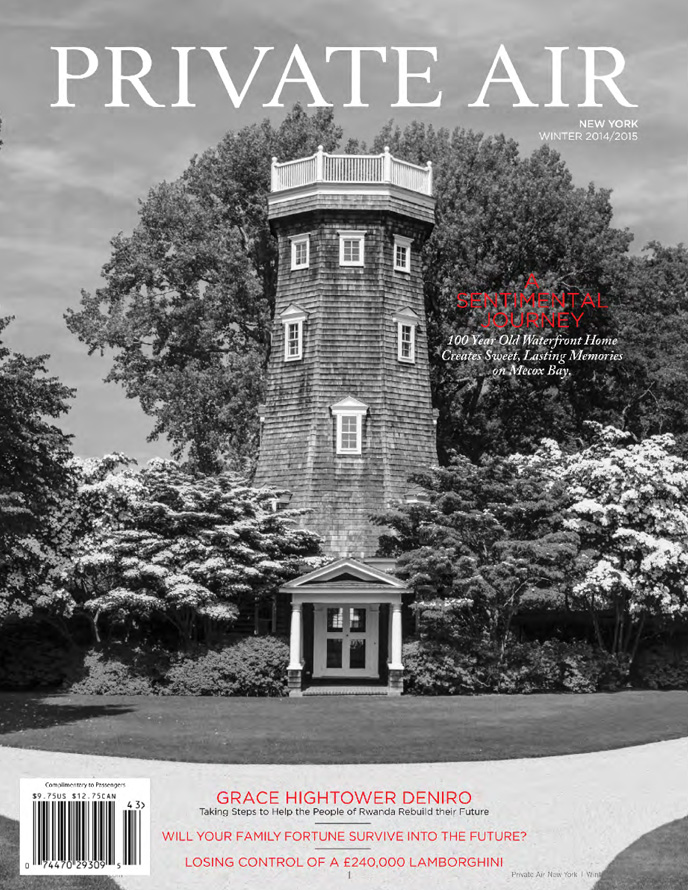By: Tricia Drevets
Download a PDF version of this article

Will your family fortune survive into the future?
Generational wealth planning is vital to family financial security – Brian Luster shares his expertise to head you in the right direction.
In our culture, the phenomenon is called “from shirtsleeves to shirtsleeves in three generations.” In China, it is called “from peasant shoes to peasant shoes in three generations.” In Italy, the saying is “from the stable to the stars and back again,” and the Scottish expression is “the father buys, the son builds, the grandchild sells and his son begs.”
Research studies have found that about 70 percent of a high net worth family’s wealth is often gone by the end of the second generation, and 90 percent is gone by the end of the third generation. Contrary to standard belief, investment mistakes and changes in the economy are not at the root of these losses. According to Roy Williams and Vic Preissler in their book Preparing Heirs: Five Steps to a Successful Transition of Family Wealth and Values, these losses are more likely due to a lack of a shared family vision and, quite simply, poor communication among family members.

Brian Luster, CEO and co-founder of The Abernathy Group II in New York, which counsels families on wealth management and estate planning strategies, says, “The traditional wealth management plan has been broken. Without heritage planning, statistically everything you’ve done (to protect your wealth for your heirs) is for naught… It is imperative that you incorporate heritage planning into your financial planning.”
Luster defines heritage planning as a set of experiences – including stories, values and traditions – that are passed down from matriarch or patriarch, to their heirs. He says that heritage planning involves education and communication, “What we’ve done is not look at the 90 percent (of wealthy families) who have lost their wealth, but at the 10 percent who have not. What are they doing differently?”
Luster, who has studied with The Heritage Institute and has gained personal experience by developing his own family’s heritage plan, offers the following five steps for creating a heritage plan for your family:
- Guided Discovery Interview. “It is essential that heirs receive an emotional inheritance,” Lister notes. “We begin by conducting an open-ended interview with the matriarch and patriarch. We ask them to share their values. We ask: “What is important to you?”
- Transcripts. This initial interview is recorded and written, audio and/or video transcripts are made from which, Luster says, “We draw out the gems, the real values.”
- Follow-up lnterview. Calling the first interview “just the beginning of a journey,” Luster says the next step is a deeper interview that enables the matriarch and patriarch to more fully develop their values and how they relate to their goals for the future and to the family history.
- Family Meeting. Now it is time for the first heritage meeting. Luster stresses that some family members may not be eager to attend. “We say, ‘Invite everyone, but work with the willing,'” he explains. “Everyone may not be on board – they may just want their check – but the goal of this meeting is to start providing heirs with pre-inheritance experiences.”
- Annual heritage meetings. These meetings have broad themes, such as Listening, Empathy, Family Leadership and Teamwork. “You will find out over the course of these meetings who is really involved, who really cares,” Luster says.
“You can always bring in outside experts, such as professional financial advisors to come and support you, but it is important to have the right family members involved. They are the ones who are learning how to take over in the future… This is not an accounting class; it is not necessarily about the money. It is about how the family can remain unified.”
Benefits of heritage planning include the creation of family mission statement and having the video records of the initial interviews with the matriarch and patriarch of the family. “Through technology, people today can have a very personal experience with their heirs,” Luster points out. “Most of us today only have a few stories or maybe a photo or two to remember our great grandparents. Now our future family members can listen to or watch these interviews.”
“Through these interviews and through the family meetings, we can directly and indirectly impact our families for generations to come.”
Click here to view this article in the original magazine publication


